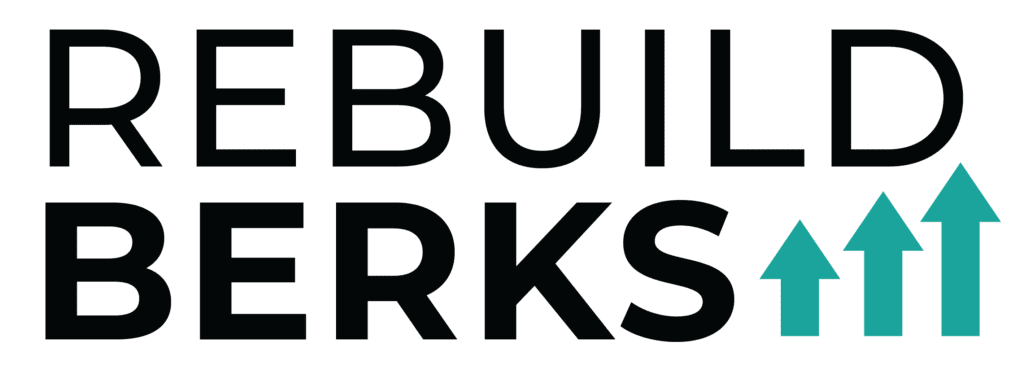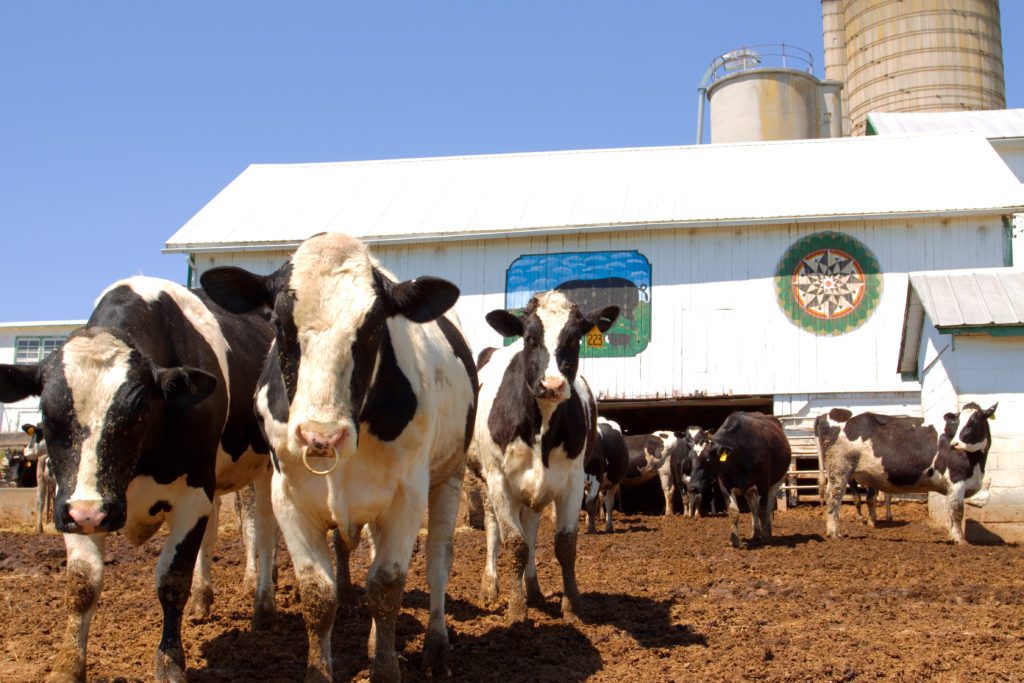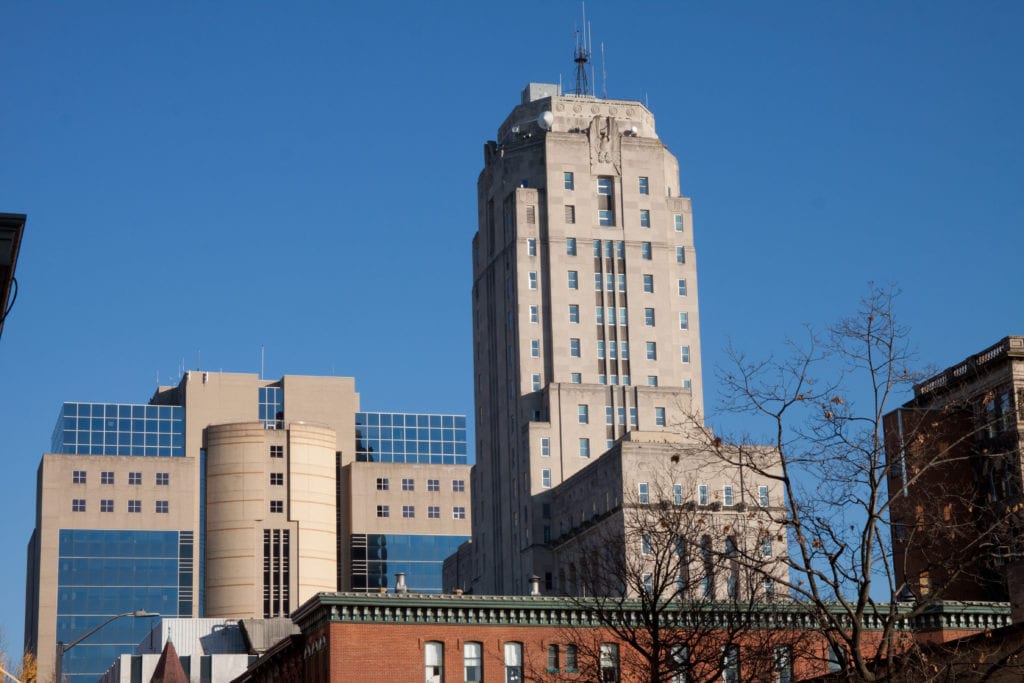
GRCA is dedicated to helping businesses connect with  appropriate financial assistance available from the federal, state, local and private sources. Below are numerous options from local, state and federal programs as well as information from private financial institutions. Consider seeking counsel from your banker, accountant and/or lawyer for financial help and guidance when selecting the appropriate financing option for you and your business.
appropriate financial assistance available from the federal, state, local and private sources. Below are numerous options from local, state and federal programs as well as information from private financial institutions. Consider seeking counsel from your banker, accountant and/or lawyer for financial help and guidance when selecting the appropriate financing option for you and your business.
Federal Funding Programs
Small Business Administration (SBA)
Federal Reserve Main Street Lending
This new Main Street Lending Program offers four-year loans to businesses that meet specific criteria and were in good financial standing before the coronavirus crisis hit. Businesses that have taken advantage of the Small Business Administration’s Paycheck Protection Program may also take out loans under this new program. Principal and interest payments under this new program will be deferred for one year.
The Paycheck Protection Program is a loan designed to provide a direct incentive for small businesses to keep their workers on the payroll.
SBA will forgive loans if all employees are kept on the payroll for eight weeks and the money is used for payroll, rent, mortgage interest, or utilities.
- The PPP Loan Forgiveness Application is now available. In addition to revising the full forgiveness application, SBA also published a new EZ version of the forgiveness application that applies to borrowers that:
- Are self-employed and have no employees; OR
- Did not reduce the salaries or wages of their employees by more than 25%, and did not reduce the number or hours of their employees; OR
- Experienced reductions in business activity as a result of health directives related to COVID-19, and did not reduce the salaries or wages of their employees by more than 25%.
- The U.S. Chamber of Commerce has developed a guide to PPP Loan Forgiveness.
- Paycheck Protection Program Flexibility Act
This advance is designed to provide economic relief to businesses that are currently experiencing a temporary loss of revenue. This loan advance will not have to be repaid.
SBA is accepting new Economic Injury Disaster Loan (EIDL) and EIDL Advance applications on a limited basis only to provide relief to U.S. agricultural businesses.
This pilot program allows SBA Express Lenders authority to deliver expedited SBA-guaranteed financing on an emergency basis for disaster-related purposes to eligible small businesses, while the small businesses apply for and await long-term financing.
The SBA will pay 6 months of principal, interest, and any associated fees that borrowers owe for all current 7(a), 504, and Microloans in regular servicing status as well as new 7(a), 504, and Microloans disbursed prior to September 27, 2020. This relief is not available for Paycheck Protection Program loans or Economic Injury Disaster loans. Borrowers do not need to apply for this assistance. It will be automatically provided.
Internal Revenue Service (IRS)
The Employee Retention Credit is a refundable tax credit against certain employment taxes equal to 50 percent of the qualified wages an eligible employer pays to employees after March 12, 2020, and before January 1, 2021. Eligible employers can get immediate access to the credit by reducing employment tax deposits they are otherwise required to make. Also, if the employer’s employment tax deposits are not sufficient to cover the credit, the employer may get an advance payment from the IRS.
FAQs for COVID Related Tax Credits for Required Paid Leave
The FFCRA provides businesses with tax credits to cover certain costs of providing employees with required paid sick leave and expanded family and medical leave for reasons related to COVID-19, from April 1, 2020, through December 31, 2020.
If you have questions regarding the COVID-19-related tax credits for required paid leave, check out the IRS’s frequently asked questions.
United States Department of Agriculture (USDA)

Assistance for Farmers Impacted by Unjustified Retaliation
- Market Facilitation Program provides direct payments to producers of commodities impacted by trade actions of foreign governments. This support helps farmers managed disrupted markets, deal with surplus commodities, and expand and develop new markets at home and abroad.
- Food Purchase and Distribution Program provides funding to purchase unexpected surplus of affected commodities such as fruits, nuts, rice, legumes, beef, pork, and milk for distribution to food banks and other nutrition programs.
- Agriculture Risk Coverage/Price Loss Coverage provides a safety net to agricultural producers when there is a substantial drop in prices or revenue for covered commodities.
- Marketing Assistance Loans and Sugar Loans to provide flexibility between harvest and marketing of a covered commodity.
- The Agricultural Conservation Easement Program has two components: agricultural land easements to protect agricultural land by limiting non-agricultural land uses; and wetland reserve easements to restore, protect and enhance wetlands through the purchase of wetlands reserve easements.
- Conservation Reserve Program assists farm owners and operators in conserving and improving soil, water, air, and wildlife resources by converting highly erodible and other environmentally-sensitive acreage to a long-term resource-conserving cover.
- The Conservation Stewardship Program encourages participants to undertake new conservation activities in addition to maintaining and managing existing conservation activities.
- The Environmental Quality Incentives Program provides assistance to landowners who face serious natural resource challenges (such as soil erosion, air quality, water quality and quantity, and the sustainability of fish and wildlife habitat) that impact soil, water and related natural resources, including cropland, grazing lands, nonindustrial forestlands, wetlands, and wildlife habitat.
- Under the Regional Conservation Partnership Program, producers receive technical and financial assistance, in cooperation with USDA partners, to address water quality and quantity, soil erosion, wildlife habitat, drought mitigation, flood control, and other regional priorities.
- Dairy Margin Coverage (DMC) is a voluntary risk management program for dairy producers by offering catastrophic coverage and various levels of buy-up coverage to manage the risk of price fluctuations.
- Dairy Indemnity Payment Programs provides payments to dairy producers when a public regulatory agency directs them to remove raw milk from the commercial market because it has been contaminated by pesticides and other residues.
Export & Foreign Assistance Programs
- Export Credit Guarantee Program (GSM-102) provides guarantees to U.S. exporters to encourage financing of commercial exports of U.S. agricultural commodities.
- Facility Guarantee Program provides guarantees to U.S. exporters of manufactured goods and services to improve or establish agriculture-related facilities and infrastructure in emerging markets that will facilitate exports of U.S. agricultural commodities.
- Food for Progress Program helps developing countries and emerging democracies modernize their agricultural sectors and expand trade through capacity building activities.
- Foreign Market Development Cooperator Program provides cost-share assistance to nonprofit commodity and agricultural trade associations to maintain and develop foreign markets for United States agricultural commodities and products.
- Market Access Program encourages the development, maintenance, and expansion of commercial export markets for U.S. agricultural commodities and products by reimbursing participating organizations for a portion of the costs of carrying out overseas marketing and promotional activities.
- Technical Assistance for Specialty Crops Program assists U.S. organizations by providing funding for projects that seek to remove, resolve, or mitigate sanitary, phytosanitary, and technical barriers that prohibit or threaten the export of U.S. specialty crops.
- Emerging Markets Program assists U.S. entities in developing, maintaining, or expanding exports of U.S. agricultural commodities and products by funding activities that enhance emerging markets’ food and rural business systems including reducing trade barriers.
- Quality Samples Program encourages the development and expansion of export markets for U.S. agricultural commodities by assisting U.S. entities in providing commodity samples to potential foreign importers to promote a better understanding and appreciation for the high quality of U.S. agricultural commodities.
- Emergency Assistance for Livestock, Honey Bees, and Farm-Raised Fish provides assistance to eligible producers for losses due to disease, adverse weather, or other conditions such as blizzards and wildfires not covered Livestock Forage Disaster Program or Livestock Indemnity Program.
- Livestock Forage Disaster Program compensates eligible livestock producers that have suffered grazing losses due to drought or fire on land that is native or improved pastureland with permanent vegetative cover or planted specifically for grazing.
- Livestock Indemnity Program provides benefits to producers for livestock deaths in excess of normal mortality caused by adverse weather or by attacks by animals reintroduced into the wild by the Federal Government.
- Noninsured Crop Disaster Assistance Program provides financial assistance to producers of noninsurable crops to protect against natural disasters that result in lower yields, crop losses, or prevented planting.
- Tree Assistance Program provides financial assistance to qualifying orchardists and nursery tree growers to replant or rehabilitate eligible trees, bushes, and vines damaged by natural disasters.
- Agricultural Management Assistance Program provides cost-share assistance to producers in States in which Federal Crop Insurance Program participation is historically low.
- Biomass Crop Assistance Program provides incentives to farmers, ranchers, and forest landowners to establish, cultivate, and harvest eligible biomass for heat, power, bio-based products, research, and advance biofuels.
- Feedstock Flexibility Program allows for the purchase of sugar to be sold for the production of bioenergy to avoid forfeitures of sugar loan collateral under the Sugar Program.
State Funding
Administered through the Pennsylvania Department of Community and Economic Development (DCED), the Pennsylvania Industrial Development Authority (PIDA) loan program provides low-interest
loans and lines of credit to Pennsylvania businesses that commit to creating and retaining full-time jobs within the commonwealth, as well as for the development of industrial parks and multi-tenant facilities. Loan applications are packaged and underwritten by a network of certified economic development organizations (CEDOs) that partner with PIDA. GRCA is the CEDO of Berks County.
Questions? Email our Finance Team or call 610-898-7782.
The COVID-19 PA Hazard Pay Grant Program was established to help employers provide hazard pay to employees in life-sustaining occupations during the coronavirus (COVID-19) pandemic. Hazard pay is intended to keep front-line employees working in sectors that are vital to every Pennsylvanians’ existence. The program will help employers provide hazard pay for their employees to retain current employees. This reimbursement-based grant is for employers who will be offering hazard pay over the eligible program period.
City & County Funding
Berks County Small-Business Restart Grant Program
Small-business owners can submit an application for a grant from $2,500 to $10,000. Applications will be accepted beginning June 15 through the Neighborhood Housing Services of Greater Berks website at nhsgreaterberks.org.
Small businesses applying for the program must meet specific eligibility criteria to be considered.
- Must be a privately held, for-profit business that has been established for at least one year.
- Located in Berks but outside of Reading.
- Employ two to eight full-time equivalent employees.
- Show financial hardship of injury caused by the COVID-19 pandemic.
- Demonstrates an annual gross revenue of $500,000 or less.
- Rehire, retain or create a minimum of one job which is designed to benefit a low- and moderate-income person.
- Agree to public health and safety reopening plan.
- Must not have already received federal funds for the same purpose.
- Must meet additional agreements outlined on the county.
Additional details about the Berks County Small-Business Restart Grant Program will be posted on the Neighborhood Housing Services of Greater Berks website nhsgreaterberks.org in the future.
Lending Institutions
GRCA has contacted financial institutions to develop a local lending matrix. Find it here.
Non-Government Grants & Loans
GoFund Me Small Business Relief Fund
As part of the Small Business Relief Initiative, GoFundMe, Yelp, and Intuit QuickBooks have each donated $500,000 to the Small Business Relief Fund. GoFundMe.org, the company’s charitable and advocacy arm, started the Small Business Relief Fund to benefit small businesses. Supporters can donate to the Small Business Relief Fund and GoFundMe.org will provide grants to small businesses across the United States, starting with the hardest-hit areas.
The Small Business Relief Fund will be issuing $500 matching grants to qualifying businesses that raise at least $500 on GoFundMe.
Hello Alice Small Business Grants
The current COVID-19 crisis has been a game changer for small businesses. To ensure Business for All, Hello Alice with the support of Verizon, Silicon Valley Bank, eBay, and others is offering $10,000 emergency grants, being distributed immediately to small business owners impacted by this pandemic. If your business has been severely impacted by COVID-19, please complete the full COVID19 Business for All Grant application to apply for immediate support in the form of $10,000 grants.
Take action and fund Black women entrepreneurs right now.
Are you a Black women-owned business? Start a campaign on IFundWomen to be featured below and start raising money today.
Learn more here.
Launch a capital raise on Mainvest and you may be eligible for a zero-interest $2,000 loan.
If you have an existing brick & mortar business that has been negatively affected by the COVID-19 outbreak and you launch a capital raise on Mainvest, you may be eligible to receive a $2,000 zero-interest loan immediately*. Then through your capital raise, you can receive over $100,000 of investment from your community.
Non-profit Pennsylvania 30 Day Fund provides forgivable loans for Pennsylvania-based small businesses with 3-30 employees. The forgivable loan is intended to provide immediate financial assistance (within maximum three days) to meet payroll, preserve healthcare coverage for employees and save jobs while they await recently approved federal funding.
Business leaders in Berks County have stepped up to create a Berks Based PA 30 Day Fund that will benefit Berks County businesses. The group is looking for interested applicants as well as willing donors.
United Way of Berks County has established the Berks COVID-19 Response Fund to provide immediate funding for nonprofit organizations that have experienced increased demand for services, operational distress, and/or increased costs to continue current services as a result of COVID-19. The Berks COVID-19 Response Fund provides flexible resources to health and human service organizations across Berks County to provide essential aid and critically needed safety net services to those most impacted by the pandemic.
Other financial resources
myWay to Credit is a marketplace that puts small business owners on a path to credit.
Workplace Readiness
Guidelines, protocols and procedures to prepare your workplace.
Prepare Workplace
Snapshot of Berks Business
Learn what the landscape of Berks County business looks like.
View Data
Back to Main Recovery Page
Questions? We are here to help.
610-898-7782 | financing@greaterreading.org




